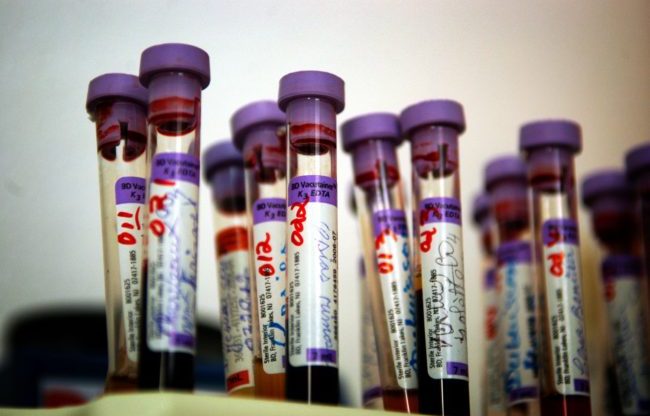Scientists discover potent antibody that can neutralise 98% of HIV strains

HIV testing should become part of routine healthcare, the HIV Commission says. (Getty)
Scientists have discovered a potent antibody that is effective in combating 98% of HIV strains.
The antibody was discovered by The National Institute of Allergy and Infectious Diseases (NIAID) in the US.

Its ability to block a wide variety of strains is rare, and so it could be used to form the basis of a new vaccine against HIV.
Called N6, the antibody 10 times more potent than VRC01, which came to the edge of breaking through to a cure.
“The discovery and characterisation of this antibody with exceptional breadth and potency against HIV provides an important new lead for the development of strategies to prevent and treat HIV infection,” said Anthony S. Fauci from the US NIAID.
Researchers have put the antibody through vigorous testing in the lab since discovering it, and have found that when it was exposed to 181 different strains of HIV, it managed to destroy 98% of them.
It also managed to destroy 16 out of 20 strains that are resistant to other antibodies of the same class.
N6 is thought to be so successful against HIV because of its breadth and potency, as well as its ability to evolve against the shape-shifting defences HIV has.
Scientists also believe it targets a part of the HIV virus that doesn’t evolve or change, which is the virus’ main resistance to being treated.
“The rare occurrence of N6 resistance mutations suggests that such mutations come at a relatively high fitness cost, which might represent a partial barrier to the selection of resistant mutants,” the team working on N6 explained.
However a series of breakthroughs have been made of late. In October, scientists in Britain came to the brink of creating a cure as a man’s early tests failed to detect any trace of HIV in his system.
Those working on the trial programme expect to wait for a few months longer before confirming whether the treatment has worked fully.
Scientists have also developed a USB stick that could help people with HIV measure their viral load.
Patients being treated for HIV will usually see their viral load reduce thanks to anti-retroviral drugs, but undergo regular testing to measure the amount of virus in the bloodstream – to monitor check the medication is working and monitor drug-resistance.
The new tech could help people living with HIV in areas with poor infrastructure, by allowing them to keep track of their viral loads.

